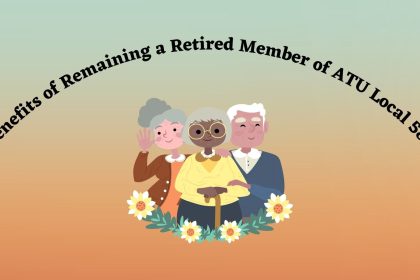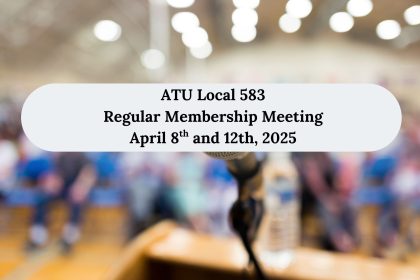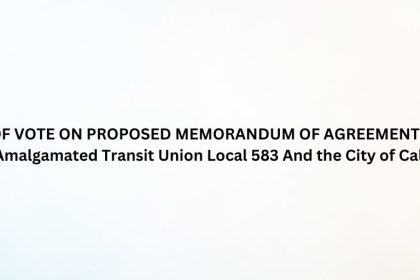Something a little different for today’s blog. We are linking/reposting a very informative post on Bill 32 and why it is damaging to labour, unions and workers.
Written by Professor Jason Foster, Athabasca University – July 10, 2020
Link to original article here
Last week the United Conservative Party government of Jason Kenney introduced Bill 32, named the Restoring Balance in Alberta’s Workplaces Act, a massive omnibus bill that amends six different labour and employment relations acts. The Bill, despite its anodyne title, marks a seismic break in labour and employment law in Alberta.
This may seem like an overstatement, given that Alberta has long had the lowest employment standards and harshest labour relations environment in Canada, save for the brief Notley inter-regnum. However, even during the previous Progressive Conservative regime, Alberta’s law of work regimes remained within the broad Canadian consensus, albeit on the lower end. Bill 32 signals a shift in strategy. As Professor David Doorey mentioned in his post about the bill, Bill 32 is inspired by an American approach to labour and employment relations. It is the latest installment of the UCP government’s shift to a low-road economic strategy which aims to build competitiveness through low corporate taxes, low wages, poor working conditions, weak environmental standards and impatience with democratic dissent.
The bill has dozens of changes, but I will highlight three buckets that I believe reveal this new strategy most clearly.
First, there are the Punish Unions amendments. These sections aggressively target unions and union activities. The bill requires unions to receive each individual member’s consent to collect the portion of dues not related to core representational activities. This runs counter to Lavigne (1991) and is a punishment for the labour movement’s active campaign during and after the 2019 election. The bill also severely restricts picketing by prohibiting picketers from “obstructing or impeding” anyone attempting to cross a picket line and requiring unions to seek permission from the labour relations board before conducting any secondary picketing. These amendments, again, run counter to recent jurisprudence promoting picketing as a fundamental component of freedom of expression under the Charter, and appear to be designed to render picketing ineffective at inflicting economic pain on the employer, a central purpose of strikes.
Second, there are the Insidious Damage amendments. These sections target technical and legalistic aspects of the labour relations system and are designed to quietly provide an advantage to employers, in particular employers seeking to avoid unionization. The bill eliminates timelines for certification votes; the requirement of a vote within five working days has been replaced with a provision calling for a vote “as soon as possible”. It allows the avoidance of an open period through early renegotiation of an agreement. This amendment will largely benefit the Christian Labour Association of Canada, an organization that anti-union employers prefer to deal. The bill removes automatic certification as a potential penalty for an unfair labour practice. Other sections restrict the scope of decision-making for arbitrators and make it easier for the labour board to overturn arbitration decisions. Some of these amendments undo changes made by the NDP while others chart new territory, but all take labour relations in the direction of benefiting the employer and making it harder to organize a union and defend a collective agreement.
Third, there are the Take Advantage of Vulnerable Workers amendments. There are a number of changes to the Employment Standards Code (ESC) that make it easier for employers to side-step core employment standards. The bill enhances employer flexibility through “averaging agreements”, which permit the averaging of working hours for overtime pay purposes. Most significantly it removes the requirement that an employee consent to an averaging agreement and allows the employer to unilaterally impose one. It also increases the number of weeks that can be averaged from 12 to 52, effectively ensuring impacted employees never receive overtime pay.
The bill streamlines and expands the scope of “variances”. Variances are permissions to violate the ESC for specific workers or work situations. They are intended to be rare and aimed at addressing unique situations. Bill 32 makes it easier to get industry-wide variances, expands the scope of Ministerial authority over variances, and eliminates the requirement that the Director ensure that a variance “meets the criteria established by the regulations”. It also allows such variances to be renewed indefinitely. The unmistakable message is that going forward variances will be seen as an active tool in creating “flexibility” for employers.
Bill 32 also makes it easier to lay-off workers by reducing notification requirements, increases the time period where no severance is required, and excludes seasonal and contract workers from notification requirements. These particular changes may seem minor, but when the law makes it easier for employers to lay off workers, the lay-off “threat” is enhanced, thus further shifting power to employers.
Taken together the three buckets represent a dramatic shift in the Alberta government’s approach to labour and employment law. It can also be seen in the government’s defence of the bill, which has been unapologetically pro-employer. If passed, Bill 32 will have material impacts on hundreds of thousands of workers. Unionized workers will see their union advantage erode, workers wishing to be unionized will find the road more difficult, and the most vulnerable workers will be increasingly at the mercy of their employer.
Jason Foster, “Alberta’s Bill 32 Is a Seismic Break in Labour and Employment Law” Canadian Law of Work Forum (July 10 2020): http://lawofwork.ca/?p=12862
All rights reserved to the originally linked article/website and author.











Thanks for this information.
Bill 32 is no good for workers.
This Sucks Alberta heading the way of US down here. Fight back with all you can.
Thanks for th info. What can we do to fight this bill?